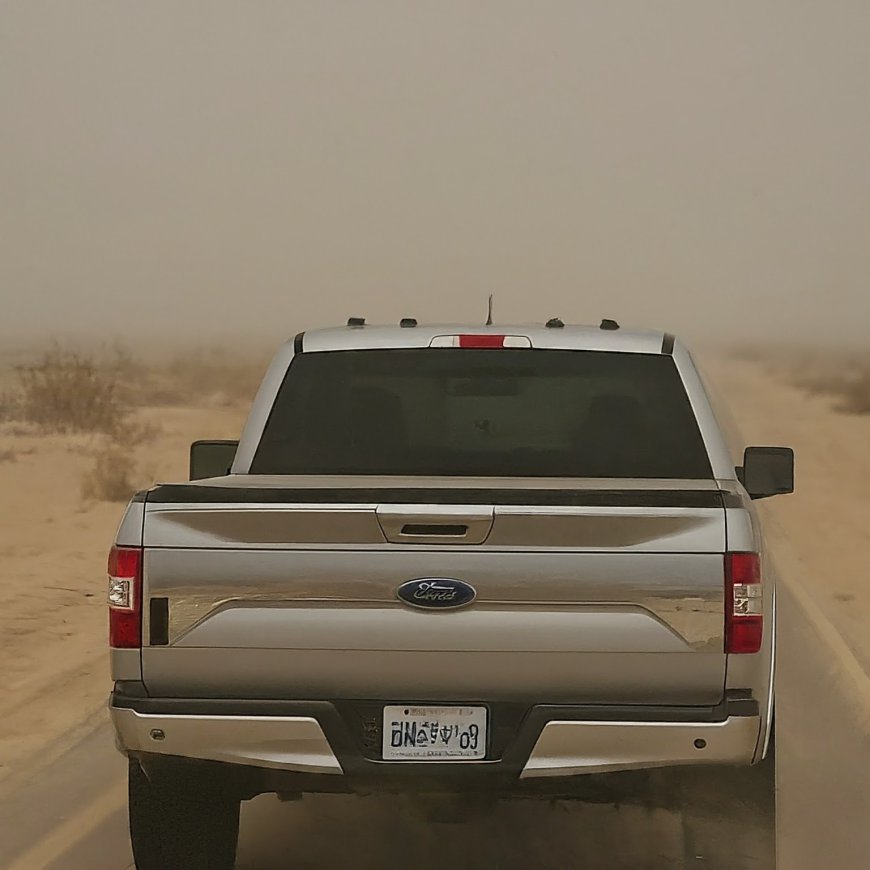How Does a Ford Hard Tonneau Cover Perform in Extreme Weather?
How Does a Ford Hard Tonneau Cover Perform in Extreme Weather?

When it comes to protecting your cargo and enhancing the functionality of your truck, a Ford hard tonneau cover is a popular choice among Ford truck owners. One of the most critical aspects of a tonneau cover's performance is how well it withstands extreme weather conditions. This article provides a comprehensive analysis of how a Ford hard tonneau cover performs in various weather scenarios, balancing key factors such as durability, security, and maintenance.
Key Factors Affecting Performance in Extreme Weather
Material Durability
Aluminum and Fiberglass Construction: Ford hard tonneau covers are typically made from robust materials like aluminum or fiberglass. These materials are chosen for their durability and resistance to harsh conditions. Aluminum is lightweight yet strong, providing excellent protection against heavy snow, rain, and wind. Fiberglass, on the other hand, offers superior strength and insulation, making it highly effective in both hot and cold climates. Both materials resist warping, cracking, and fading, ensuring that the cover remains functional and visually appealing even after prolonged exposure to extreme weather.
Water Resistance
Sealing and Drainage Systems: One of the primary concerns for truck owners is water infiltration during heavy rain or snow. Ford hard tonneau covers are designed with advanced sealing and drainage systems to keep the cargo area dry. The seals are typically made from high-quality rubber or silicone, which provides a tight barrier against water. Additionally, many Ford tonneau covers feature built-in drainage channels that direct water away from the cargo area. However, it is essential to note that while these systems are highly effective, no tonneau cover is entirely waterproof. Proper installation and regular maintenance of the seals are crucial to maintaining optimal water resistance.
Wind Resistance
Aerodynamic Design: The aerodynamic design of a Ford hard tonneau cover not only improves fuel efficiency but also enhances wind resistance. In high-wind conditions, a well-secured hard cover can prevent the cargo from being exposed to debris or being blown out of the truck bed. The cover’s low profile reduces wind drag, minimizing the risk of it being lifted or damaged by strong gusts. However, ensuring that the cover is properly latched and locked is essential for optimal wind resistance.
Temperature Extremes
Heat and Cold Tolerance: Extreme temperatures, whether hot or cold, can affect the performance of a Ford hard tonneau cover. In hot climates, materials like aluminum can become very hot to the touch, potentially affecting the cover's surface and the cargo underneath. Fiberglass covers offer better insulation, helping to keep the cargo area cooler. In freezing temperatures, the seals and locking mechanisms may become stiff, making it more challenging to open or close the cover. Regular lubrication and maintenance can mitigate these issues, ensuring smooth operation in all weather conditions.
Snow and Ice
Load-Bearing Capacity: During heavy snowfall, the load-bearing capacity of a Ford hard tonneau cover becomes a critical factor. Hard covers are generally designed to support a significant amount of weight, preventing them from collapsing under the weight of snow or ice. However, it is advisable to remove accumulated snow and ice regularly to avoid overloading the cover, which could lead to damage over time.
Tradeoffs and Challenges
Balancing the various factors that impact the performance of a Ford hard tonneau cover in extreme weather involves certain tradeoffs. For instance, while fiberglass covers offer better insulation and protection against temperature extremes, they are typically heavier than aluminum covers, which might affect ease of installation and fuel efficiency. Additionally, while advanced sealing systems provide excellent water resistance, they require regular maintenance to prevent wear and tear, especially in harsh weather conditions.
Another challenge is the impact of extreme weather on the cover's longevity. Continuous exposure to UV rays, heavy rain, snow, or wind can cause wear over time, even with the most durable materials. Regular inspections and maintenance are essential to prolong the life of the cover and ensure it continues to perform effectively in extreme weather.
Conclusion
Ford hard tonneau cover is a reliable and effective solution for protecting your cargo in extreme weather conditions. Its performance is influenced by several key factors, including material durability, water and wind resistance, temperature tolerance, and load-bearing capacity. While there are tradeoffs involved in choosing the right cover for your specific needs, the benefits of using a Ford hard tonneau cover far outweigh the challenges. Regular maintenance and proper installation are crucial to ensuring that your cover continues to provide the protection and functionality you need, no matter the weather.
